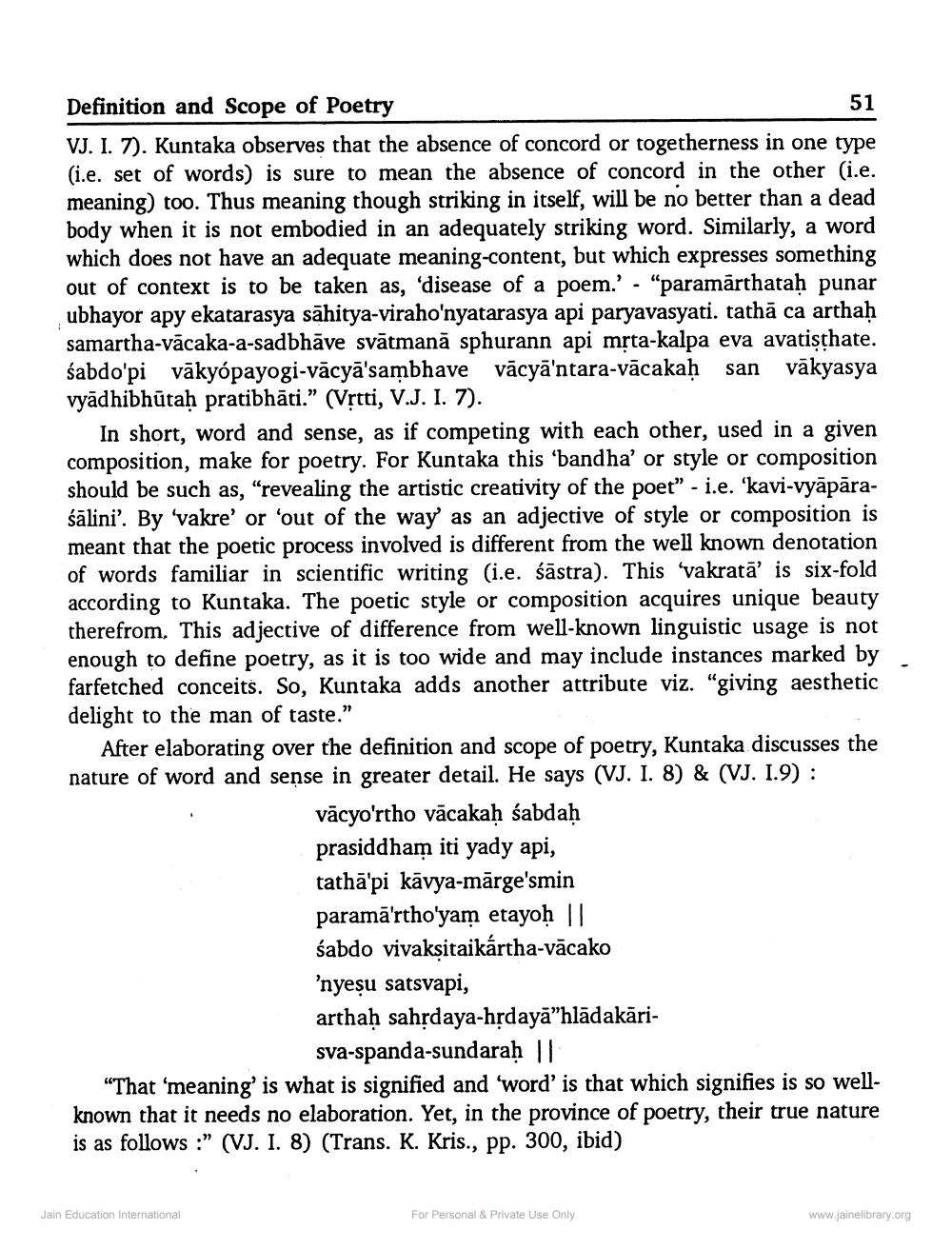________________
Definition and Scope of Poetry
51
VJ. I. 7). Kuntaka observes that the absence of concord or togetherness in one type (i.e. set of words) is sure to mean the absence of concord in the other (i.e. meaning) too. Thus meaning though striking in itself, will be no better than a dead body when it is not embodied in an adequately striking word. Similarly, a word which does not have an adequate meaning-content, but which expresses something out of context is to be taken as, 'disease of a poem.' - "paramarthataḥ punar ubhayor apy ekatarasya sahitya-viraho'nyatarasya api paryavasyati. tatha ca arthaḥ samartha-vācaka-a-sadbhāve svātmanā sphurann api mṛta-kalpa eva avatiṣṭhate. śabdo'pi vākyópayogi-vacyā'sambhave vācya'ntara-vācakaḥ san vākyasya vyādhibhūtaḥ pratibhāti." (Vṛtti, V.J. I. 7).
In short, word and sense, as if competing with each other, used in a given composition, make for poetry. For Kuntaka this 'bandha' or style or composition should be such as, "revealing the artistic creativity of the poet" - i.e. 'kavi-vyāpāraśalini'. By 'vakre' or 'out of the way' as an adjective of style or composition is meant that the poetic process involved is different from the well known denotation of words familiar in scientific writing (i.e. sastra). This 'vakrata' is six-fold according to Kuntaka. The poetic style or composition acquires unique beauty therefrom. This adjective of difference from well-known linguistic usage is not enough to define poetry, as it is too wide and may include instances marked by farfetched conceits. So, Kuntaka adds another attribute viz. "giving aesthetic delight to the man of taste."
After elaborating over the definition and scope of poetry, Kuntaka discusses the nature of word and sense in greater detail. He says (VJ. I. 8) & (VJ. I.9):
vācyo'rtho vācakaḥ śabdaḥ prasiddham iti yady api, tathā'pi kavya-mārge'smin paramā'rtho'yam etayoḥ || śabdo vivaksitaikártha-vācako
'nyeșu satsvapi,
arthaḥ sahṛdaya-hṛdayā"hladakārisva-spanda-sundaraḥ ||
"That 'meaning' is what is signified and 'word' is that which signifies is so wellknown that it needs no elaboration. Yet, in the province of poetry, their true nature is as follows:" (VJ. I. 8) (Trans. K. Kris., pp. 300, ibid)
Jain Education International
For Personal & Private Use Only
www.jainelibrary.org




